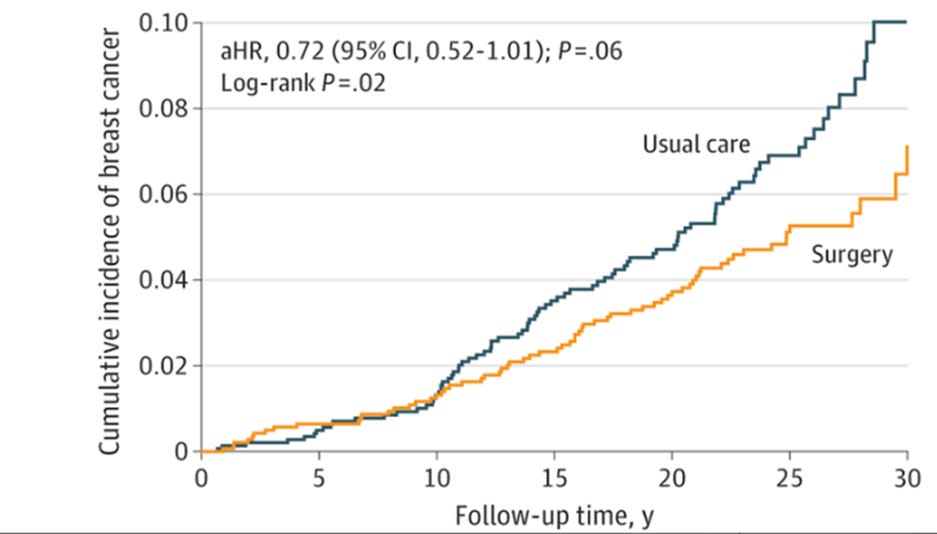Cumulative incidence of breast cancer in bariatric surgery in usual care group
Source: Kristensson, et al JAMA Surgery May 15, 2024 LINK
Obesity is associated with metabolic disease, including diabetes and cardiovascular disease. Obesity is also associated with an increased risk of certain cancers, including breast cancer, colorectal cancer, and endometrial cancer. There is encouraging data that effective treatment of obesity lowers the risk of these cancers in those who are obese.
JAMA Surgery last week published a 30-year follow-up of a cohort of about 2,800 Swedish women, some of whom chose to have bariatric surgery. They found that bariatric surgery was associated with a substantial decrease in breast cancer incidence, and this was most apparent in women who had high initial levels of insulin. Many with obesity are insulin-resistant, so the pancreas produces excess insulin. An accompanying editorial noted that current bariatric surgery is more effective at sustained weight loss than surgery from three decades ago, so this study might understate the benefit. This was not a randomized trial, as patients decided whether to undergo surgery, so there could have been other unmeasured differences between the surgery group and the control group.
Most employers currently cover bariatric surgery. Sixty-seven percent of employers that responded to the WTW 2023 Best Practices Survey covered bariatric surgery, and 73% of employers with over 1,000 employees covered this surgery.
WTW colleagues can find 2023 BPS survey results at this link including presentations by industry segment and company size.
Implications for employers:
This adds to the data demonstrating that treatment of obesity has benefits beyond improving metabolic health.
One cannot infer from this data that treatment of obesity with GLP-1 drugs will also lower risk of breast cancer.
The direct and long-term benefits of bariatric surgery, along with the higher long-term value compared to GLP-1s, may support the addition of bariatric surgery benefits for employers who do not current cover it.
Thanks for reading. You can find previous posts in the Employer Coverage archive
Please subscribe, “like” and suggest this newsletter to friends and colleagues. Thanks!
Tomorrow: Mail order abortion pills are safe and effective



